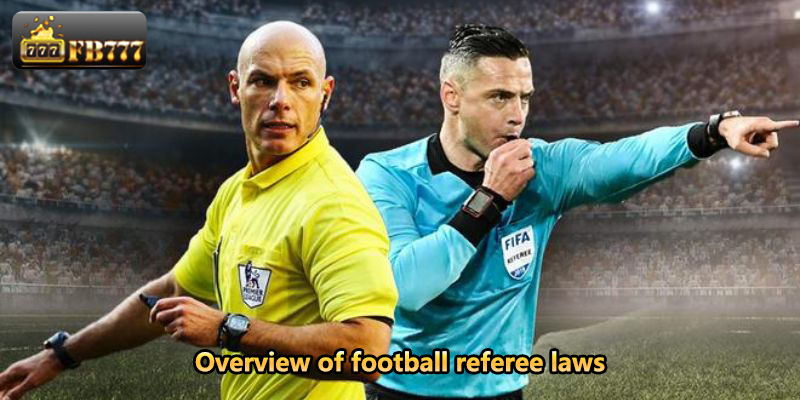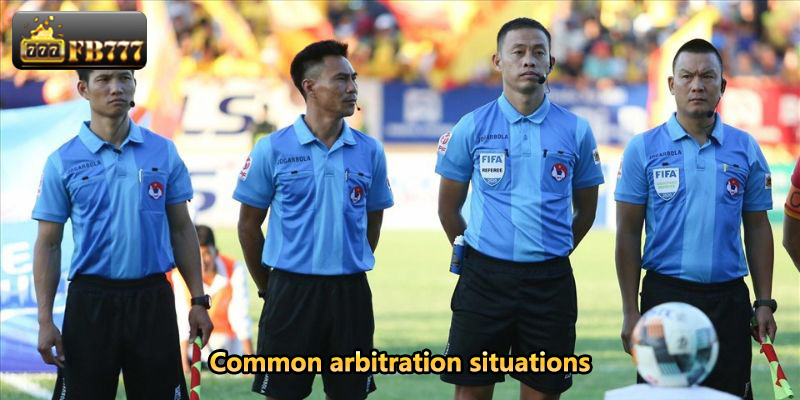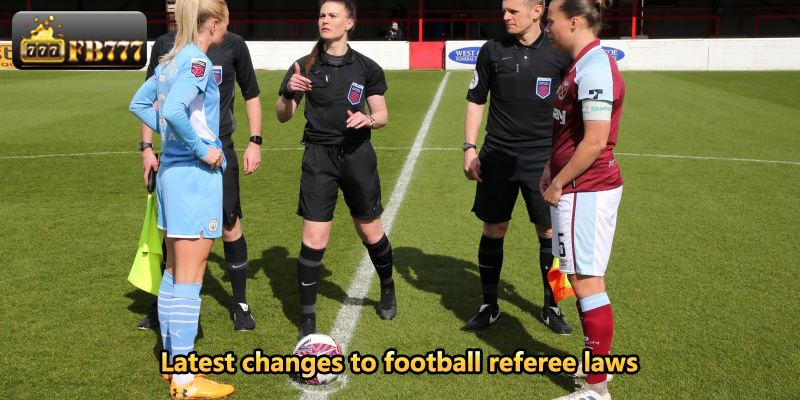Football referee laws play an important role in maintaining fairness and transparency of the match. Football referee laws is not only a set of rules, but also the foundation that determines fairness in every situation on the field. This not only ensures balance between teams, but also builds fans’ trust in sports justice. However, to better understand the importance of football referee law, we need to look deeply at its infrastructure and operating principles. Let ‘s analyze with FB777 .
Overview of football referee laws
Football referee law is a set of regulations and rules used to run football matches. This law was issued by the World Football Federation (FIFA) and applies to all football matches in the world.

Duties of the referee
The referee is the one who controls the match and has the final decision on all situations that occur during the match. The referee’s duties include:
- Ensure that the match is played according to soccer rules.
- Run the match fairly and objectively.
- Punish players who violate football rules.
- Resolve disputes between players, coaches and other match-related figures.
Types of Football referee laws
In a football match, there are 4 types of official Football referee laws:
- Referee: Is the person who controls the match and has the final decision on all situations that occur during the match.
- Assistant referee: There are 2 assistant referees, standing on both sides of the field, assisting the main referee in determining fouls, offsides, goals, etc.
- Line referee: There are 2 line referees, standing at both ends of the field, assisting the main referee in determining offside situations, goals, etc.
- Fourth referee: Is the person who replaces the main referee in case the main referee has problems and cannot continue to control the match.
Common arbitration situations
The referee is the most powerful person on the football field. They are responsible for ensuring the rules of the game are enforced and making decisions about situations that occur during the match. Some common Football referee laws situations in football include:
- Goal: When the ball crosses the goal line and is completely inside the goal, the referee will blow the whistle to signal a goal.
- Penalty: If a player commits a foul in the opponent’s penalty area, the referee will blow the whistle to signal a penalty. The team awarded a penalty will be given a direct shot at goal from the penalty spot.
- Direct penalty: If a player commits a serious foul, the referee will blow the whistle to signal a direct penalty. The team receiving a direct free kick can kick the ball directly into the goal or pass the ball to a teammate for a combination play.
- Indirect penalty: If a player commits a non-serious foul, the referee will blow the whistle to signal an indirect penalty. The team receiving an indirect free kick must kick the ball before it touches another player.
- Corner kick: If the ball touches the touchline outside the goal, the referee will blow the whistle to signal a corner kick. The team receiving a corner kick will take a free kick from the corner of the field.
- Penalty card: The referee can issue a warning or disqualify a player if that player commits a serious foul or behaves inappropriately. A yellow card is a warning card, a red card is a disqualification card.
In addition, the referee can also make other decisions depending on the specific situation occurring during the match. For example, the referee can give an advantage if the fouled team can score a goal from that situation. The referee can also stop the match if a player is injured or other incidents occur.

Football refereeing is a job that requires high concentration and the ability to analyze situations quickly and accurately. Referees need to have extensive knowledge of football rules and the ability to flexibly handle situations.
Latest changes to football referee laws

The latest football referee laws were issued by the International Federation of Football Associations (FIFA) on 1 July 2023. These changes were made to improve the fairness, attractiveness and safety of the sport king.
Here are some notable changes:
- Increase the number of reserve players to 15: Each team is allowed to register a maximum of 15 reserve players, instead of the current 12 players. This will help teams have more options to replace players who are injured or not performing well.
- Reduce the number of player substitutions: Each team is only allowed to replace a maximum of 5 players in each match, instead of the current 7 players. This will help the match go faster and more attractive.
- Clarify the offside rule: The offside rule is made clearer to minimize controversy. Under the new rules, a player will not be considered offside if he is behind the last player of the opposing team when the ball is passed by his teammate.
- Adjustment of red card errors: Red card errors will be adjusted as follows:
- Direct red card:
- The player commits a rough, dangerous foul or commits a violent act.
- The foul player intentionally prevents the opponent’s goal by using his hand or arm.
- The fouling player intentionally prevents an opposing player from having a clear opportunity to score by committing a harsh or dangerous foul.
- Indirect red card:
- The player commits a second foul in the same situation.
- The player commits a third foul in the same match.
- The player commits a foul during the 11m penalty shootout.
- Direct red card:
See more: FB777 Soccer Betting
Epilogue
An overview of football referee laws demonstrates the importance of this system of rules in maintaining fairness and transparency in each match. The principles of football refereeing not only help ensure balance between teams, but also build fans’ confidence in sporting justice. During the match, the referee often faces many difficult situations, such as determining fouls, offsides, penalty cards and obstructive events. The referee’s quick and accurate decisions determine not only the outcome of the match, but also create attraction and drama for football, an emotional and unpredictable international sport.


